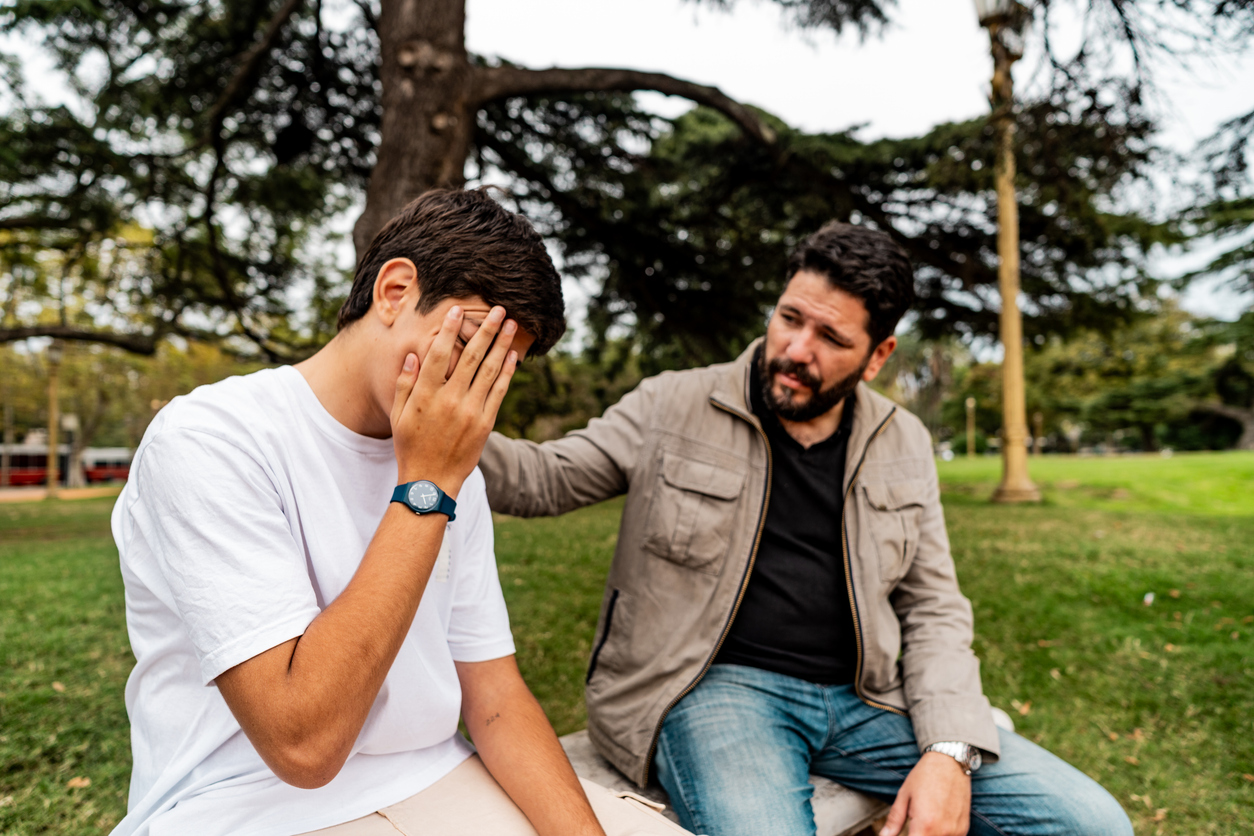You are at a park with some friends playing basketball when you trip over a curb and land on your arm. There’s a jolt of pain; a snap and you realize your arm is broken. The friends you’re with rush over to help and when you tell them you cannot move your arm they rush you to the hospital. The rest of your day is spent in the ER seeing a doctor, getting a cast put on and given instructions to get plenty of rest for the injury to heal. Eight weeks later you get your cast off and things go back to normal. Society does not question why you have the cast; people pay little attention to it. Maybe close friends sign it, offer their support to help you out. While annoying, the broken arm is not a major roadblock in your life.
You are at a park with some friends and suddenly you feel terrible and cannot explain why. You used to enjoy going out and playing the sport you love, but suddenly all the energy and joy you had for it has evaporated. Everyone tells you that being outside and spending time with friends is supposed to make you happy, but you are feeling sad and isolated. People notice how quiet you are and ask you what is wrong, but you cannot explain it. Nobody has ever told you how to communicate to others this deep feeling of sadness you are carrying. You feel that if you tell them you are feeling sad, they will feel bad, or you will be a burden to them. Everything stays kept inside. The sadness keeps getting worse and you feel trapped. Because of this you stop spending time with friends and your relationships drift apart. Now you have even more to be sad about. This is what depression can look like.
An arm is a useful part of our body that helps us get through our day-to-day life. If something is wrong with it our society gives us the tools to communicate this and seek straightforward treatment that most always works. This treatment comes without judgement or shame. The brain is the most important part of our body that regulates everything else we do. When the brain is not doing well, we lack the skills to communicate this to others. When we do finally find the words, we are often ignored, or the path to treatment is confusing and expensive. It’s hard to know where to even start. As children there are few (if any) lessons on how to care for the brain and listen to what it needs. While people may treat a broken arm as commonplace, problems with the mind come packaged with guilt, shame, and judgement.
While things have steadily started to improve in our country, accessibility to mental health care and the way many people perceive it remains a complicated problem. This stigma, a set of negative beliefs about mental health issues, steers people away from arming themselves with the tools they need to feel better. Often, we will hear things like “just get over it,” or “just push through it,” when we talk openly about mental health. If the brain is the most complex part of the body, why are we expecting that we can “just get over” these issues? You would have better luck letting your broken arm heal on its own without a cast than treating depression or anxiety by ignoring them. This is a big issue affecting many lives in America, and one that can be resolved if we learn to have more open conversations with one another about the state of our mental health.
Mental health therapy is one of the most useful tools at our disposal to get the help we need to heal our minds and feel good again. We can learn how to take better care of our mind, how to communicate our thoughts and feelings and how to better regulate our behavior so we don’t keep digging ourselves further into a hole. Having someone simply listen to you express yourself is vitally important for each one of us. Changing your perspective and getting to know yourself on a deeper level helps you grow as a person and become a well-adjusted adult. Even though you cannot see it, many people struggle with some form of mental illness. This is the norm, not the exception. If we can all learn to talk about it, we can better support one another on our paths forward and better the world we live in. This usually starts with therapy, and from there, ripples extend to everyone around you and inspire positive change.
If your mind is telling you that it needs repair, reach out to a therapist and put the work in to begin the healing process. Remember the mind is incredibly complicated, so it may take longer than an arm takes to heal. Having a healthy mind is worth the time and effort and it shows other people that seeking support is not as bad as they may think. Instead of fighting battles within ourselves and by ourselves, we can put our heads together and do what humans do best, collaborate. In therapy you are collaborating with your therapist to reach your goals and make changes. I encourage you to fight back against mental health stigma and challenge this problematic thinking by taking action. Support is a Google search away and there are many great therapists that can help you on your unique mental health journey. You’ve got the strength within yourself to feel better, after all you have made it this far. Start bringing joy back into your life, find a therapist, express yourself and challenge yourself to grow.



